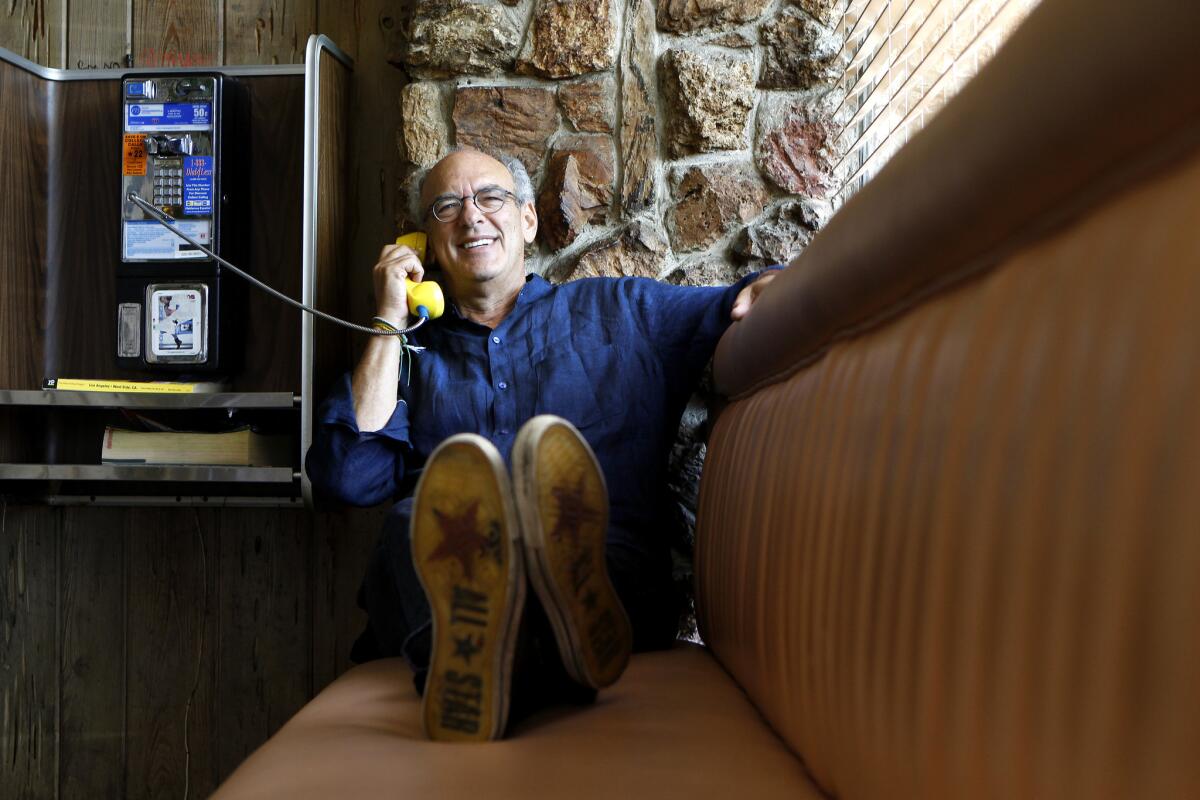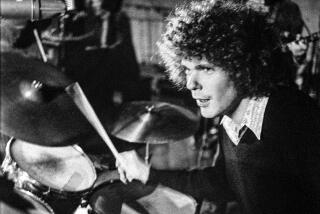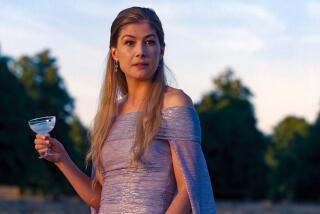‘Supermensch’ documents Shep Gordon’s rise to success in Hollywood

- Share via
When Shep Gordon was a struggling manager in the late 1960s working with one client — the equally impoverished rocker Alice Cooper — they used to hang out in the wee hours of the morning at Canter’s Deli, where a “Rebel Without a Cause” actor was usually holding court.
“We couldn’t afford food,” Gordon said, adding that a waitress gave them pickles and sauerkraut. “We probably came back 15 to 20 times to be in the presence of Sal Mineo. We were like star-struck and he was our first big star.”
Decades later, the gregarious Gordon was holding court midmorning at Canters, enjoying a breakfast of egg whites and lox. His years of sex, drugs and rock ‘n’ roll were long behind him. Now 66, he’s semi-retired and resides in Maui.
His only music client is Cooper, but he’s back in L.A. for the opening Friday of “Supermensch: The Legend of Shep Gordon.” The breezy documentary marks the feature directorial debut of his good pal, Mike Myers of “Wayne’s World,” “Shrek” and “Austin Powers.”
Though not a household name, Gordon is known far and wide in entertainment circles. Janis Joplin punched him out in 1968 (they became great friends), and it was Jimi Hendrix who suggested he become a manager (and sent him to Cooper). Gordon’s clients have included Canadian “Snowbird” singer Anne Murray, Teddy Pendergrass, Blondie, Luther Vandross and even Groucho Marx. A gourmet cook, he helped to make celebrities out of chefs, including Emeril Lagasse.
Gordon also had a magic touch with motion pictures.
As co-chair of Island Alive and Alive Films in the 1980s, he was involved in the production or distribution of indie classics such as “Kiss of the Spider Woman,” “The Trip to Bountiful” and the documentary “Koyaanisqatsi.”
Sharon Stone, who was a girlfriend, introduced him to one of his closest friends, the Dalai Lama. Gordon serves on the board of directors of the Tibet Fund, which preserves the culture and identity of the Tibetan people. Though he never had children of his own, Gordon became guardians of four orphans, now grown, who were the grandchildren of another former girlfriend.
A wide smile crosses Gordon’s face remembering trips to Disneyland when they were young. “One of my favorite things in my life was breakfast every morning at the Disneyland buffet with Goofy,” Gordon said with his hearty laugh, which sounds like a happy seal.
Gordon met Myers in 1991 during production of “Wayne’s World” to discuss a Cooper song Myers wanted to use in the box office hit. It was an instant bromance.
“I’ve been hounding him for 20 years to do a documentary,” Myers said. “I completely wore him down.”
Though Gordon is front and center in the film, Myers uses historical clips, comedic reenactments and interviews with his BFF’s such as Cooper, Michael Douglas, Sylvester Stallone and Tom Arnold to tell the manager’s picaresque life.
Gordon “is the real deal,” Myers said. “The reason I called the film ‘Supermensch’ is that he does good acts that nobody knows about. He is everything you hoped hippies would turn into. He is a friend to artists.”
And especially to Myers, who without going into detail, acknowledged that during a particularly difficult time, Gordon came to his rescue and let him stay at his house in Maui.
Gordon misses the camaraderie and spirit that permeated the music industry when he started in 1968.
“It was a very different time,” he said. “Jimi Hendrix, Alice or Jim Morrison, if they would headline, ticket prices were $2 and maybe it was 5,000 [in the audience]. Accouterments of success weren’t around anyone. Most guys didn’t have cars, and you would hitchhike places. We were all struggling to buy lunch.”
And it wasn’t competitive.
“It wasn’t a network of lawyers, agents, record companies that say no to everything,” Gordon noted.
“There was a lot of collaboration because there was a spirit of we were all in it together and trying to survive, trying to change the world. It was still a generation that believed we could change the world. There were no rules.”
More to Read
Only good movies
Get the Indie Focus newsletter, Mark Olsen's weekly guide to the world of cinema.
You may occasionally receive promotional content from the Los Angeles Times.











